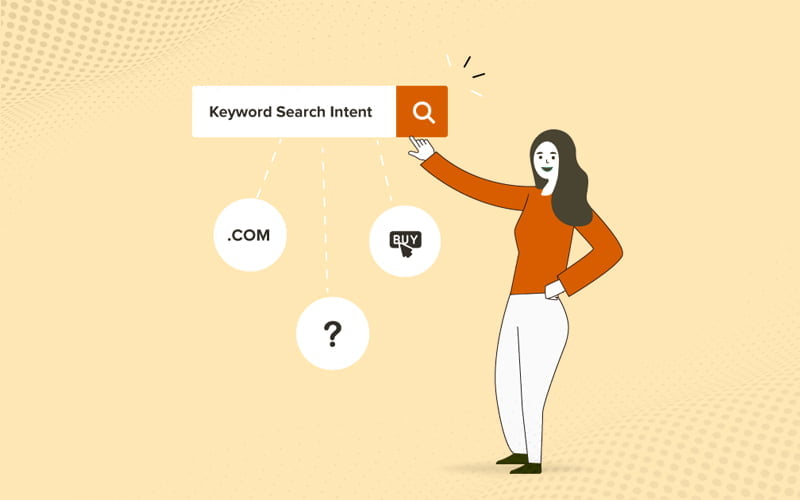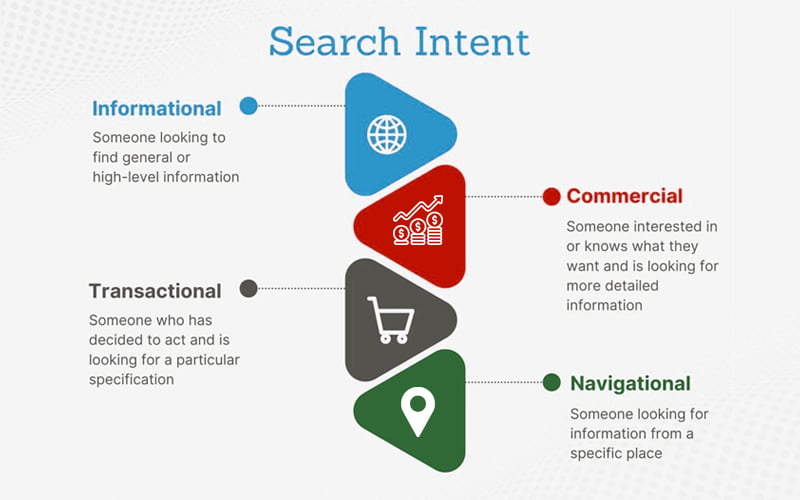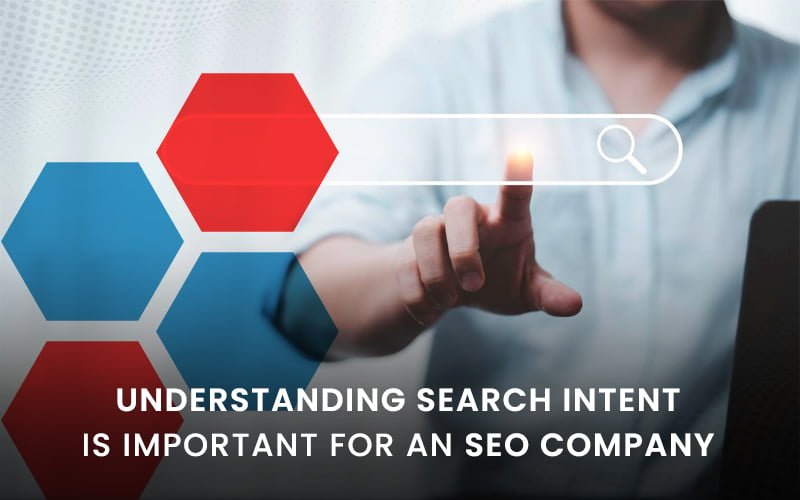After all, if you don’t know why someone is looking for a specific term, you won’t be able to create content that meets their needs. In this post, we’ll define search intent and explain why it’s so important for SEO company in Gurgaon.
WHAT IS SEARCH INTENT?
Simply put, search intent is the goal of a search. Is the searcher looking for a specific item, such as a brand or product? Or looking for information? Do they intend to buy something? Or find answers to their questions?
People look for keywords or phrases that indicate intent. A business owner, for example, types ”performance marketing company”, and we can deduce from this keyword that the user’s intent is to find a company that provides performance marketing services.

Google Hummingbird, RankBrain, and other algorithm updates automatically interpret search intent and present users with results that match it.
Understanding keyword intent, or why someone is searching for something, assists SEO experts in developing a keyword-based content strategy that will bring relevant users to their website. The key to improving your SERP ranking is to focus your SEO strategy on intent.
WHY DOES SEARCH INTENT MATTER FOR AN SEO COMPANY?
It is absolutely essential to match the user’s search intent. Here are four reasons why user search intent is important for any Digital Marketing Agency.
1. Google values search intent
Accomplishing search intent is a primary goal for Google, which means it should be a primary goal for SEO agency as well. When a user searches for a specific term and finds irrelevant results, Google receives a signal that the intent is likely mismatched.
For example, if a user searches “Simple pasta recipe” and is served with restaurants that serve pasta, he or she will bounce back without clicking on any results. This tells Google that the intent of those results does not match the intent of the searcher.
2. Increase your funnel stage reach
When it comes to running a business and developing a successful content marketing strategy, I cannot emphasize enough the importance of remembering search intent and letting that drive the pieces of content you create and how you create them.
And why is this so significant? The more targeted your content is too different search intents, the more users you can reach various stages of the funnel. You can increase your chances of reaching everyone, from those who have yet to discover your brand to those who are ready to convert, by focusing your efforts on matching search intent.
3. Boost your ranking
Because Google’s primary ranking factors are relevance, authority, and user satisfaction, it’s simple to see how improving your keyword targeting to match search intent can improve your overall rankings.
- Relevance
If they find what they’re looking for on your site, they’re less likely to go back to Google and look for something else. When your website content is relevant to search intent, you’ll notice a difference in key performance indicators like click-through rate and bounce rate.
- Authority
While backlinks contribute significantly to a site’s authority, it’s also important to develop a strong internal linking strategy that tells Google “I have a lot of content covering all angles and intents surrounding this topic” in order to rank well.
- User satisfaction and happiness
Is the content you create valuable and relevant to your target audience? If you do so, you can increase brand authority and visibility by creating valuable content on topics in which your brand is well-versed that satisfy a variety of intents, and also render user satisfaction. That concludes the story.
FOUR TYPES OF SEARCH INTENT

Search intent can be divided into four broad categories:
- Navigational intent: attempting to find something (for example, “Amazon books”).
- Informational intent: Intent to learn more about something (for example, “What’s the weather forecast?”)
- Transactional intent: attempting to carry out a specific action (for example, “Buy running shoes”).
- Commercial intent: attempting to learn more before making a purchase decision (for example, “Review of iPhone 13”).
It’s critical that the content you’re creating matches both the terms people are searching for and the search intent of your target audience. When people are looking for information, make sure your post or page is informative. Make your company name the first result when someone searches for it. When people are still researching their options, provide content that will help them make an informed decision. However, if someone wants to buy one of your products, direct them to your sales pages.
Make it your mission to give searchers what they want if you want to rank long-term. You’ll most likely receive a reward from Google for doing so.
